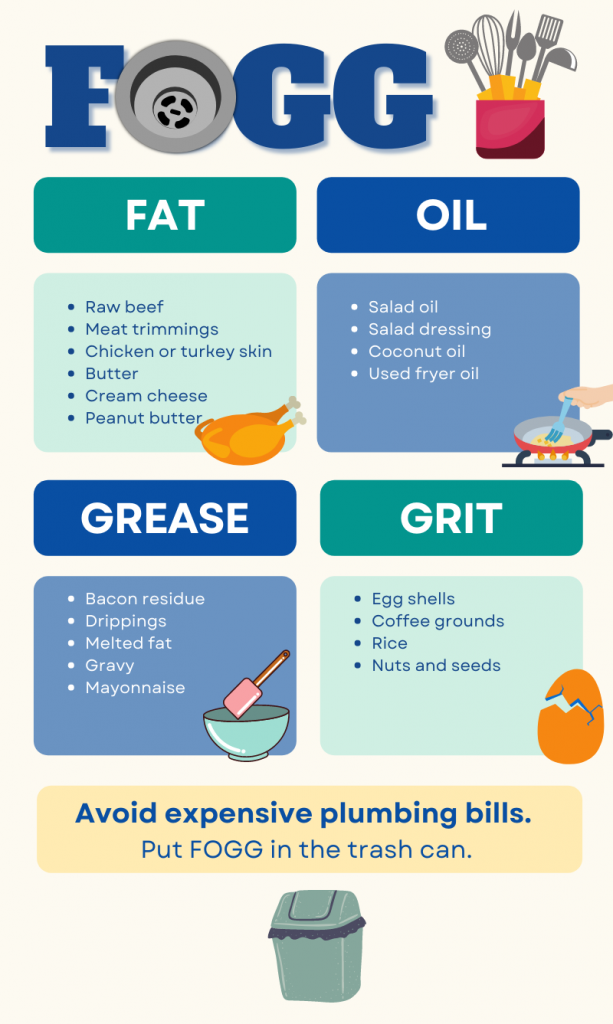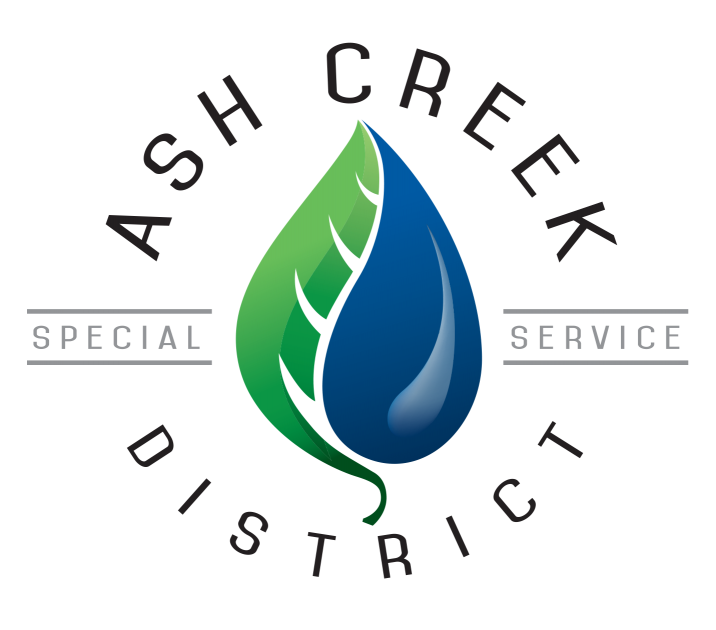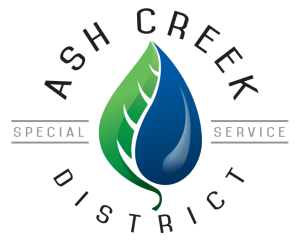No! FOGG from your kitchen and bathroom should be CANNED, not washed down the drain. Putting these greasy FOGG materials down the sink causes 80% of all sewer line clogs. Do your part by properly disposing of them in the trash.
When washed down the drain, FOGG sticks to the inside of sewer pipes. Over time FOGG can build up, block entire pipes, and lead to serious problems. Directly pouring FOGG down the drain is not the only way it gets into the sewer system; it drips off scraps that make their way into the sink and even items that are broken up by the garbage disposal. Washing dishes (either in the sink or dishwasher) can also cause FOGG to get into the pipes if they aren’t wiped down before washing. Using cloth rags or towels to scrape plates or clean greasy dishware can also get FOGG into the sewer when the towels are washed. So, make sure to use something that can go directly into the trash.


